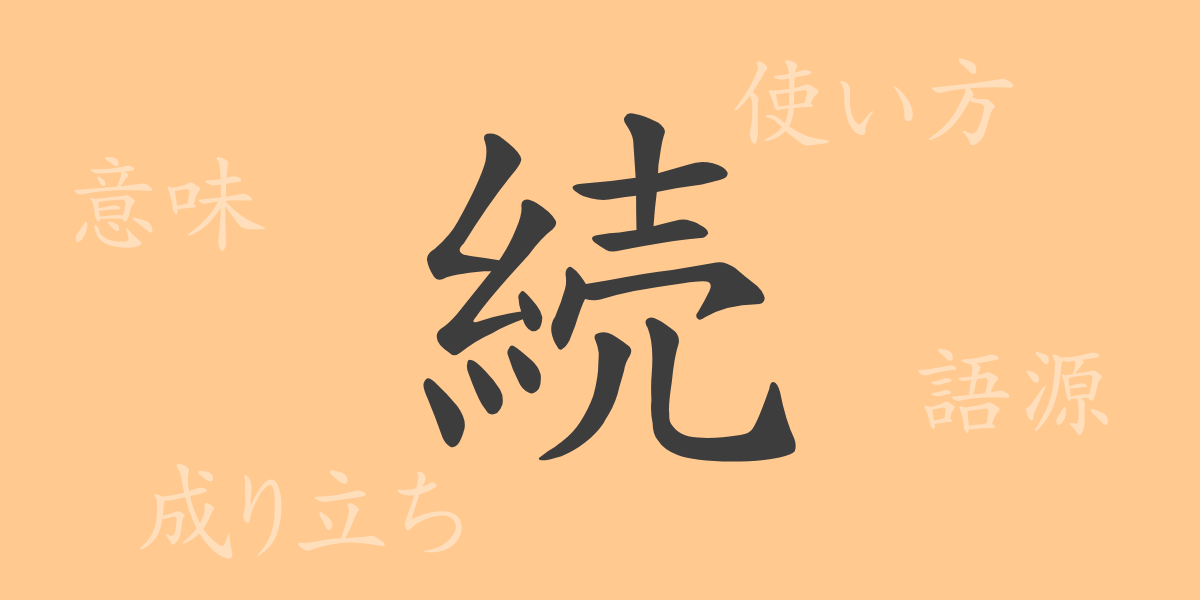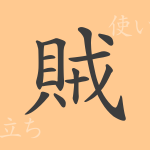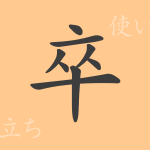The meanings held within a single Kanji character are deeply rooted in its shape and history. The commonly used Kanji “続” (ゾク)(つづ・く)(つづ・ける) (zoku)(tsuzuku)(tsuzukeru) in Japan is no exception. Frequently appearing in our daily lives, especially during pivotal moments such as graduations and new beginnings, “続” is indispensable. This article delves into the Kanji “続”, exploring its origins, meanings, applications, and its significance through various phrases and proverbs.
Origin of “続” (zoku)
The Kanji “続” evolved from ancient Chinese pictographs, originally depicting yarn extending from a loom, symbolizing continuation. Over time, this evolved into the modern form combining “予” (pre-planned) and “糸” (thread), implying ‘continuation as planned.’
Meaning and Usage of “続” (zoku)
“続” primarily means ‘to continue’ or ‘to follow’ and is commonly used in verbs expressing continuation of time, actions, or states, such as in “後続” (follow-up) or “継続” (continuation). These terms highlight the ongoing flow and sequence of events.
Readings, Stroke Count, and Radical of “続” (zoku)
The Kanji “続” has multiple readings, adapted to various contexts, emphasizing its versatility:
- Readings: On’yomi “ゾク”, Kun’yomi “つづく”, “つづける”
- Stroke Count: 13 strokes
- Radical: “糸” (いとへん) (ito hen)
Phrases and Proverbs Using “続” (zoku) and Their Meanings
“続” is featured in many idioms and proverbs, each enriching the Japanese language:
- 継続は力なり (Persistence is strength) – Continual effort brings great power and results.
- 無理矢理続ける (Force continuation) – Continuing something by force.
- 話に花が続く (The conversation flourishes) – A lively and ongoing discussion.
- 後を続ける (Follow behind) – To follow in someone’s footsteps.
- 手を続ける (Keep working) – To continue working on something without interruption.
Conclusion on “続” (zoku)
The Kanji “続” plays a crucial role in expressing the importance of continuity and persistence in our lives. While it has undergone many changes from ancient times to the present, the essence of its meaning remains intact and is passed down through generations. Through idioms and phrases, we utilize the expressive power of “続” in our daily communication. This article hopefully brings you closer to appreciating the deep allure of the Kanji “続”, enriching your understanding and experience of the Japanese language.

























